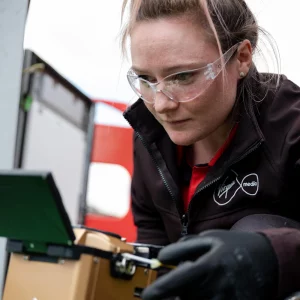Sponsored Links
UK Liberal Democrat Party Votes to Repeal New DEAct Internet Piracy Laws
Posted: 20th Sep, 2011 By: MarkJ

 The UK Liberal Democrat party, which is currently part of a coalition government with the Conservatives, has used its autumn conference to vote in favour of adopting a new policy paper that could see all or part of the controversial Digital Economy Act (DEA) being repealed.
The UK Liberal Democrat party, which is currently part of a coalition government with the Conservatives, has used its autumn conference to vote in favour of adopting a new policy paper that could see all or part of the controversial Digital Economy Act (DEA) being repealed.The Act itself seeks to tackle "illegal" internet copyright infringement (piracy) by imposing technical measures upon Internet Service Providers (ISP) and issuing warning notices to customers when such activity is detected. However some people fear that it goes too far and could lead to overzealous censorship and or innocent broadband users being disconnected ("suspended") from the internet.
Chair of the IT Policy Working Group and LibDem MP for Cambridge, Julian Huppert, said:
"This policy has some really exciting proposals, such as those on R&D, net neutrality and digital inclusion. IT is so important to Britain already - and it has the potential to drive a new, greener and more sustainable economy.
Tackling piracy is important, but it shouldn’t be seen as an end in itself. It’s more important to create conditions that reward innovation and talent, and ensure that creators get the benefits of their work.
The Digital Economy Act fails to do that; worse, it sorely lacks a convincing evidence base and real democratic legitimacy. I am delighted that Conference has passed this motion calling for the damaging parts of the Act to be repealed, and suggesting new ways for the digital economy to grow."
"This policy has some really exciting proposals, such as those on R&D, net neutrality and digital inclusion. IT is so important to Britain already - and it has the potential to drive a new, greener and more sustainable economy.
Tackling piracy is important, but it shouldn’t be seen as an end in itself. It’s more important to create conditions that reward innovation and talent, and ensure that creators get the benefits of their work.
The Digital Economy Act fails to do that; worse, it sorely lacks a convincing evidence base and real democratic legitimacy. I am delighted that Conference has passed this motion calling for the damaging parts of the Act to be repealed, and suggesting new ways for the digital economy to grow."
The policy paper itself actually put forward two options, the first of which (A) demanded what can only be described as a near complete repeal (sections 3–18) of the DEAct. The second (B) was aimed more at reducing red tape by culling sections 17-18 (website blocking) and only implementing 9-16 once "a robust evidence base and democratic legitimacy to justify so doing" had been found.
It's unclear whether the vote itself will make much of a difference as the party endorsed a similar position during last year's spring conference (here), which never amounted to much. Meanwhile the majority of Labour and Conservative MPs appear to support the act as it stands, albeit without mandatory website blocking (a voluntary solution is still being pursued).
The LibDem's also hope to begin an independent review of the true impact of file-sharing (P2P) on the creative industries, which points to an "insufficient evidence base" from past studies that have often been funded by Rights Holder associated groups.
Preparing the Ground: Stimulating Growth in the Digital Economy (PDF)
http://www.libdems.org.uk/siteFiles/resources/docs/conference/101%20-%20Preparing%20the%20Ground%20(IT).pdf
Search ISP News
Search ISP Listings
Search ISP Reviews
Latest UK ISP News








Cheap BIG ISPs for 100Mbps+
150,000+ Customers | View More ISPs
Cheapest ISPs for 100Mbps+
Modest Availability | View More ISPs
Latest UK ISP News
Helpful ISP Guides and Tips
Sponsored Links
The Top 15 Category Tags
- FTTP (6802)
- BT (3882)
- Politics (3075)
- Business (2767)
- Openreach (2663)
- Building Digital UK (2512)
- Mobile Broadband (2476)
- FTTC (2142)
- Statistics (2129)
- 4G (2093)
- Virgin Media (2026)
- Ofcom Regulation (1779)
- 5G (1733)
- Fibre Optic (1604)
- Wireless Internet (1595)
Sponsored
Copyright © 1999 to Present - ISPreview.co.uk - All Rights Reserved - Terms , Privacy and Cookie Policy , Links , Website Rules





























